Keynotes & Symposiums
IEEE GCCE 2013 has exciting Keynote Addresses and Symposiums by distinguished researchers and business leaders.
Please come and enjoy the keynote sessions, and share knowledge and hot ideas.
[Wednesday, October 2, 10:00]
Future of Household Electronic Appliance
The age of Internet of Things (IoT) has arrived. The common household electronic and electric appliances will talk to other devices and Cloud via network, become aware of the environment (context-aware), be augmented by the intelligence afforded by the Cloud computing, and offer new interactivity through people's smart-phones and mobile devices. This symposium will update you on the development that has happened since last year’s symposium.
The above talk and the following panel session address what will be necessary for this vision to come true, what are the hurdles and the consequences. The panel will discuss topics such as HEMS, Open Data and cloud computing, mobile devices and appliances, software for appliances, etc.
Dr. Ken Sakamura
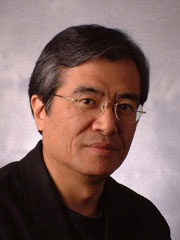
The Interfaculty Initiative in Information Studies
The Graduate School of the University of Tokyo
Institute of Infrastructure Application of Ubiquitous Computing
Dr. Ken Sakamura was born in Tokyo in 1951. He is currently a professor of the Interfaculty Initiative in Information Studies at the Graduate School of the University of Tokyo, and the director of Institute of Infrastructure Application of Ubiquitous Computing there. He has been the leader of the TRON project since 1984. In this capacity, he has designed the TRON open computer system architecture, which has been used in many consumer electronics appliances including mobile phones (esp. its radio control), digital cameras, FAX machines, engine control of automobiles, etc. The latest TRON specification OS is called T-Kernel. Today, the IoT (Internet of Things) or Ubiquitous Computing is a major research and development target, and basic research and application developments and leading-edge prototype systems are being built (http://www.t-engine.org/). He has held the position of the director/CEO of YRP Ubiquitous Networking Laboratory since January 2002. He has been elected as fellow and golden core member of the IEEE Computer Society. He was awarded Takeda Award in 2001, Ichimura Academic Award from the new technology development foundation in 2001, the Medal with Purple Ribbon from Japanese government in 2003, and Okawa Prize in 2004, Prime Minister Award in 2005 and Japan Academy Prize in 2006.
[Wednesday, October 2, 12:00]
Challenge to Impression Creation by Audio
The ultimate goal of Audio is to create the world fulfilled with humanity and pleasure as the culture of music reproduction. The Audio should provide for anyone an impression and imagination whenever touching it, to achieve this goal. Japan Audio Society (JAS) is continuously taking the activities toward to this goal since established 60 years ago. And JAS will push on to achieve this goal "Impression Creation" continuously in future.
At the lecture, firstly consider what they were influenced to human life reviewing the progress of Audio from Edison and Berliner to CD and iPod. Then, analyze the domestic audio market. And speak JAS's challenge to lead "Impression Creation by Audio" while transforming the world of Audio from the pursuit of Functional Convenience to the pursuit of Value of Human Sensibility.
Mr. Ryoji Menjo
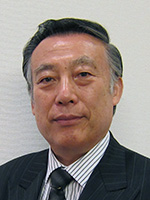
Japan Audio Society
He was born in 1947 at Gifu prefecture in Japan.
He joined Pioneer in 1966 and became Managing Director of Pioneer Marketing Japan in 2005. He took a post of Vice Chairman of Japan Audio Society in 2007 and become Chairman of Japan Audio Society in 2008.
[Thursday, October 3, 10:00]
Future Directions of Consumer Electronics
This talk will discuss new developments in consumer electronics, the trends that will drive new products for the next decade and the role that the IEEE Consumer Electronics Society is playing in developing the technologies that will enable the next generations of consumer products. Technologies that will be covered include automotive technology, the internet of things, Internet based applications and the infrastructure that supports them, new imaging and visual technology and digital storage both within CE devices and as well as in the cloud.
Dr. Thomas Coughlin
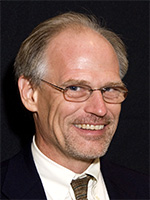
Tom Coughlin, President, Coughlin Associates is a widely respected storage analyst and consultant. He has over 30 years in the data storage industry with multiple engineering and management positions at high profile companies.
Dr. Coughlin has many publications and six patents to his credit. Tom is also the author of Digital Storage in Consumer Electronics: The Essential Guide, which was published by Newnes Press. Coughlin Associates provides market and technology analysis (including reports on several digital storage technologies and applications and a newsletter) as well as Data Storage Technical Consulting services. Tom publishes the Digital Storage Technology Newsletter, the Media and Entertainment Storage Report, and the Capital Equipment and Technology for the Hard Disk Drive Industry Report.
Tom is active with SMPTE, SNIA, the IEEE Magnetics Society, IEEE CE Society, and other professional organizations. He is in charge of Future Directions for the IEEE Consumer Electronics Society as well as Director Elect for IEEE Region 6. Tom is the founder and organizer of the Annual Storage Visions Conference, a partner to the International Consumer Electronics Show, as well as the Creative Storage Conference. He is the general chairman of the annual Flash Memory Summit. He is a Senior member of the IEEE, Leader in the Gerson Lehrman Group Councils of Advisors and a member of the Consultants Network of Silicon Valley (CNSV). For more information on Tom Coughlin and his publications, go to www.tomcoughlin.com.
[Thursday, October 3, 11:30]
Watch and Glasses: Which is Likely Winner?
In these 5 years, smartphone is penetrated worldwide rapidly. Note that smartphone is the ultimate shape of "mobile computing" where a user brings his computer and uses it anywhere he is. The next step, when the device technologies and the surrounding environments are more advanced, is "wearable computing" where a user attaches his computer on his body as if he "wears" it and uses it as it is. Although everyone knew this since 10 years ago, a sign of sudden expansions finally seems to have appeared in this year. Glasses and watches are very focused as two typical and promising forms of wearable devices now, and in this talk, a survey of their current situations and their comparison will be done and the future possibility of their deployments are shown.
Dr. Masahiko Tsukamoto
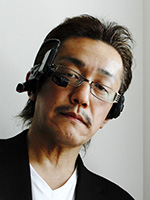
Department of Electrical and Electronics Engineering
Graduate School of Engineering
Kobe University
Masahiko Tsukamoto received the B.E., M.S., and Dr. E. degrees from Kyoto University, Kyoto, Japan, in 1987, 1989, and 1994, respectively. From April 1989 to February 1995, he was a research engineer at Sharp Corporation.
From March 1995 to September 1996, he was an assistant professor at the Department of Information Systems Engineering of Osaka University as an assistant professor, and From October 1996 to September 2004, he was an associate professor at the same department. Since October 2004, he has been a professor at Kobe University.
He researches on system, interface, and applications of wearable and ubiquitous computing. Their target application areas include entertainment, healthcare, and ecology.
He has been using HMDs and wearable computers in his daily life since 2001.
[Friday, October 4, 10:00]
Debate! : Ideal Space for Life by TV, Smartphone and the Internet
The Internet started to connect computers in the last century. A smartphone, which is extremely more powerful than the 20th century's computer, now is with almost everyone for 24 hours of the life. A television set in living room, has transformed completely as a 'supercomputer' with a big screen, of course connecting to the Internet. Japan is such a country where the space of life is very well prepared from a point of digital technology. In this session, the question of what is the 'ideal life space' in such advanced digital condition, would be discussed and debated by experts from wide diversity of area.
Jun Murai, Ph.D
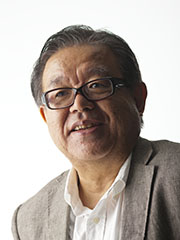
Faculty of Environment and Information Studies
Keio University
He graduated Keio University in 1979, Department of Mathematics, Faculty of Science and Technology, MS in Computer Science from Keio University in 1981, Ph.D. in Computer Science from Keio University in 1987. Specialist in Computer Science, Computer Network and Computer Communication. 1984, he developed the Japan University UNIX Network (JUNET), 1988, established WIDE Project, currently the Founder, 1990's, research and development of computer networks, 2000's, IT governance for national government including Prime Ministers and global IT policy communities.
1993-1995, Member of Internet Architecture Board (IAB), 1997-2000, Board of trustee of Internet Society (ISOC), 1998-2000, Board of Director of the Internet Corporation for Assigned Names and Numbers (ICANN).
He inducted into The 2013 Internet Hall of Fame/ 2011 IEEE Internet Award / 2011 The Okawa Prize / 2007 Funai Achievement Award / 2005 Jonathan B. Postel Service Award / 1999 The Okawa Publications Prize.